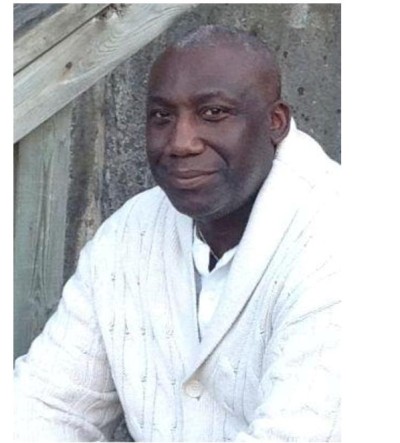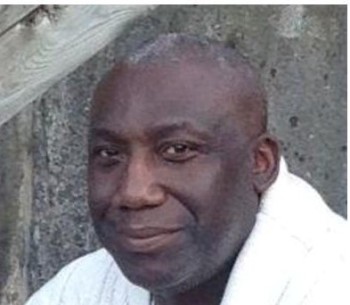
Could you tell me about your childhood? Where were you born? Is there anything about your childhood that stands out for you?
I was born in London England and immigrated to Ottawa in the early Sixties. Our family was one of the only Black families in Eastview ( Vanier ). We always stood out as different.
Was there any person or persons that influenced your childhood the most?
I would have to say my parents . They were very hard working, but always taught me great values. Many of these of these values I carry to this day.
Could you describe your job as a Special Constable with the Ottawa Police Service?
Special Constables are civilian members who play an important role within the Ottawa Police Service. Once hired, the Chief of Police swears in members as Peace Officers. Special Constable is a designation issued by the province of Ontario, providing members with a limited Law Enforcement role in the City of Ottawa. Special Constables work in various sections within the Ottawa Police including Court Security / Temporary Custody, Court Liaison Section.
Court Security Constables are responsible for the safe transportation and custody of persons being moved between detention facilities and other locations. They also ensure the safe and secure custody of persons in custody at the Ottawa Police Central cell block facility and with specialized training, can take DNA samples and/or fingerprints.
Special Constables in the Court Liaison Section are responsible for serving subpoenas, summons to witnesses and charged persons including conducting investigations to locate individuals when necessary as well as various other documents. Special Constables in this section also get the opportunity to liaise with investigators and front line officers to exchange information as they relate to witnesses. Their duties also include testifying in court.
The Ottawa Police Special Constable Selection Process is a five-stage process. Applicants must successfully complete each stage to go on to the next stage. Please note that the Special Constable Selection Process is competitive and the successful completion of these stages does not guarantee an offer of employment. For more information on careers with the Ottawa Police, readers should visit: https://www.ottawapolice.ca/en/careers-and-opportunities.asp.
How is your job different from a regular constable? Are the eligibility requirements and the training different?
The one major difference is that we do not carry a firearms in the commission of our duties . In relation to the training we receive most of the same training as regular constables. The training is provincial mandated. All officer must successfully pass in order to be operational.
The Ottawa Police Service has been under pressure for the past year or two, with charges of racism against some officers. How has that affected you and other black officers?
In all honesty I try not let these issues affect the way I do my job. I am and have been committed to the issues related to diversity for most of my career. The unfortunate side effect is that these issues are profoundly affecting many of or minority members. Whether we like it or not racialized situations can negatively affect a organization as a whole. I hope that I can work to create changes that can make a difference at the end of the day.
You are a member of a task force appointed by the Ottawa Police to look into ways of improving the relationship between the Police and the city’s racialised communities. Can you describe the mandate of this group and how far you have gone in your mission? Are you receiving cooperation from the various community groups and individuals? Is there a phone number or contact e-mail that a person can use to make a submission to the task force? When do you intend to complete your findings and how will they be used by the Police?
The mandate of the Outreach Liaison Team (OLT) is : Is to increase community engagement with the Somali community, and the broader communities, to create a conversation. In order to accomplish this we have been able to reach out to many key stakeholders. The input of diverse racialized and marginalized is so important. This includes community members in more established organization as well as grassroots organization. For the most part we have been welcomed. We are there to listen to the concerns and problems that affect their individual communities. As an organization we too are interested in feedback as well as recommendations. The input of our community part is essential in helping us to create a frame work we can us to build something that can work for all involved. I have been involved in community in my person and professional life was encouraged by the community. I applaud the honest and straight forward dialogue that occurred with the community partners. At the end of the entire project from the data collected a report will be produced. The information collected will help the Ottawa Police to serve their community better. If the community wishes to contact me personally this how I can be reached: Email [email protected]; Office 613 236-0311 Ext 4539; Cell 613-894-0136.
In your free time you also play in a band. Can you tell us about this experience? Have you recorded a cd yet?
Music has always been a part of my life and have been a jazz musician for about 10 years. I really enjoy performing and it has been a form of distraction from the stresses of life. It is my wish to release a formal C D in the near future.
If you had to live your life all over again, is there anything you would do different?
In hind sight I all think we all have things we would like to change.
Looking at Canada’s black population, there seems to be a divide between African and Caribbean communities on the one hand, and Anglophone and francophone communities on the other. Do you agree with this perspective and if so what can be done to remedy this divide?
It is so unfortunate that we look at persons often based on differences as opposed to similarities. In essence we are really all Africans; as it is the cradle of creation. I would great if we could start by looking how we can work together as people. In fact our differences whether, color culture, languages or other things are great. The principle of treating all persons with respect and dignity goes a long way to creating a remedy.
Over the years, have you seen any change in the status of the black population in Canada? Are we any better off now than say, ten or fifteen years ago?
Certainly the growth of the Black population has brought a number of talented and well educated people. We have made some steps forward but still face many changes. It is truly unfortunate that we are dealing with issues that I feel should been resolved by this time. The advantage though is we now have more voices at the table to challenge unacceptable behaviors.
Looking at the Black population in Canada, what do you see as our greatest challenge and how do we resolve it? What are our strengths?
The biggest challenge is remaining united as a community. Education and inclusiveness of our own people can pay a key role. Our greatest strength is the upcoming youth. We have so many talented and bright youth in our communities. They are well informed and often willing to become involved.
Finally, do you have a message for readers of Black Ottawa Scene?
I have been privileged to live in this city for over 50 years. My wife of over 30 years and I have raised our family here. The city has much potential and as members of our community we can help it reach that potential. As a person of color and the child of immigrants I have faced and endured many challenges. I still remain ever hopeful that if we as community can join together we can accomplish great things.

